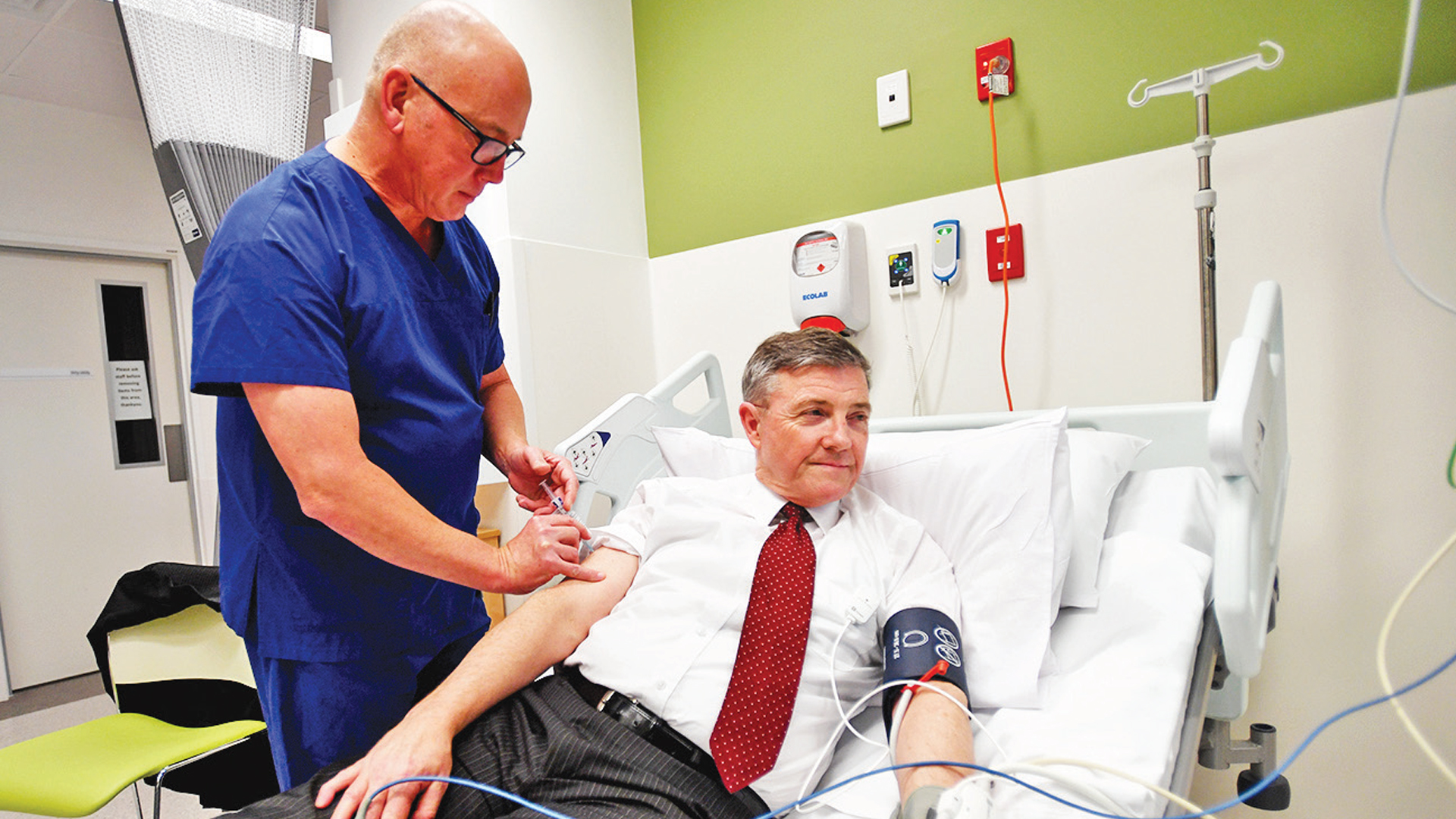Two doses of COVAX-19, or a placebo, will be injected into 40 healthy people between the ages of 18 and 65 at the Royal Adelaide Hospital’s clinical trial unit.
The vaccine candidate was developed by Adelaide-based company Vaxine, which has laboratories at Flinders University.
Another potential vaccine, developed in the US, made it to the human trials stage in Melbourne in late May.
But Vaxine research director Professor Nikolai Petrovsky said the human trials beginning in Adelaide today were the first for a vaccine developed in the southern hemisphere.
“I am very confident there will be successful vaccines against COVID-19,” he said.
“Hopefully ours will be one of those [but] ultimately the data will determine that.
“Our COVID-19 vaccine is based on a synthetic protein which is produced in insect cells, so it doesn’t require people to be given a virus.”
The first phase of the trial will check whether the vaccine candidate induces the creation of antibodies to kill the coronavirus that causes COVID-19, and whether it provokes any serious adverse side effects.
Professor Petrovsky said initial results should be clear within eight weeks.
If that phase is successful, the next human trials for the potential vaccine would be conducted on people in higher-risk groups, including older people.
The final phase would involve testing on a large population with a high incidence of COVID-19 transmission overseas.
If it clears these hurdles, Professor Petrovsky said, then it will require approval from the Therapeutic Goods Administration (TGA) before becoming available for distribution in Australia.
Professor Petrovsky said the whole process was likely to take about six months.
Developmental work began in January, before the coronavirus lockdowns began but in anticipation of a worsening global health crisis.
“Our modelling data showed in January this was likely to be a major pandemic… this is the culmination now of four months of very intense work,” Prof. Petrovsky said.
Adelaide pharmacist Ian Tindall, who was the first person to be injected as part of the trial, said he had no concerns about participating.
“All the due diligence has been done and risk mitigation, so (I’m) quite happy with everything,” he said.
“If not me, then who? Someone has to do this, so why not?”
Mr Tindall said he was concerned that coronavirus had become “the new polio”.
“It will just come back in waves until we develop an effective vaccine,” he said.
“It will be the developing world that will benefit from this vaccine, if it proves to be effective.”
SA Health Minister Stephen Wade said the program was “an opportunity for a medical breakthrough” that had potentially global implications.
“I would particularly like to thank the South Australians who volunteered to be part of this trial,” he said. “Their willingness to participate in this trial may well be the key to saving the world from this virus.”

